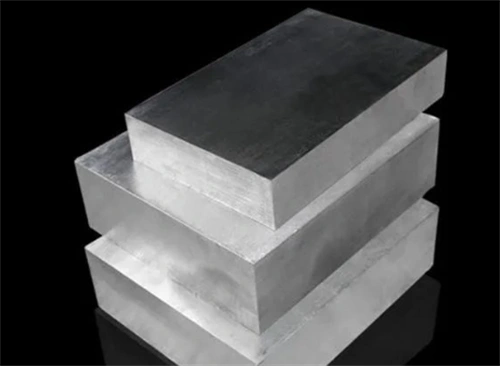Titanium is malleable. The elongation of high-purity titanium can reach 50-60%, and the shrinkage of area can reach 70-80%. Although high-purity titanium has low strength, pure industrial titanium contains a small amount of impurities and added alloying elements that can significantly strengthen its mechanical properties, making its strength comparable to high-strength. This means that as long as the industrial pure titanium pipe contains a small amount of interstitial impurities and other metal impurities, it can have both high strength and appropriate plasticity. The specific strength (strength to weight ratio) of industrial pure titanium pipe is very high among metal structural materials. Its strength is equivalent to that of steel, but its weight is only 57% of steel. In addition, titanium tubes have strong heat resistance and can still maintain good strength and stability in an atmosphere of 500°C. Titanium tubes also have good low-temperature resistance. Even at ultra-low temperatures of -250°C, they still have high impact strength and can withstand high pressure and vibration. Another notable feature of industrial pure titanium tubes is their strong corrosion resistance. This is because it has a particularly large affinity for oxygen and can form a dense oxide film on its surface, which can protect titanium from medium corrosion. Therefore, titanium has good stability in acidic, alkaline, neutral salt water solutions and oxidizing media, and has better corrosion resistance than existing stainless steel and other non-ferrous metals. Industrial pure titanium tubes have a wide range of applications. At present, industrial pure titanium tubes not only have very important applications in the aerospace and aviation industries, but have also been widely used in many industrial sectors such as chemical industry, petroleum, light industry, and power generation. Because pure industrial titanium tubes have many excellent properties such as lightweight, high strength, strong heat resistance, corrosion resistance, etc., they are known as the "metal of the future" and are promising new structural materials.

industrial pure titanium Process performance
Titanium can be subjected to various pressure processes such as forging, rolling, extrusion, stamping, etc. In principle, the equipment used to heat steel can be used to heat titanium. The atmosphere in the furnace is required to maintain a neutral or weak oxidizing atmosphere, which is never allowed. Use hydrogen for heating.
Titanium has a high yield ratio (σ0.2/σb), generally between 0.70 and 0.95, and has high deformation resistance. However, the elastic modulus of titanium is relatively low, so it is difficult to process titanium materials. Pure titanium has good welding properties, and the weld strength, ductility, and corrosion resistance are similar to those of the base material. To prevent pollution during welding, tungsten electrode argon gas-shielded welding must be used.
The cutting of titanium is difficult. The main reason is that titanium has a large friction coefficient and poor thermal conductivity. The heat is mainly concentrated on the tooltip, causing the tooltip to soften quickly. At the same time, titanium has high chemical activity, and it is easy to adhere to the tool when the temperature rises, causing adhesive wear. When cutting, the tool material should be selected correctly, the tool should be kept sharp, and a good cooling process should be adopted.





